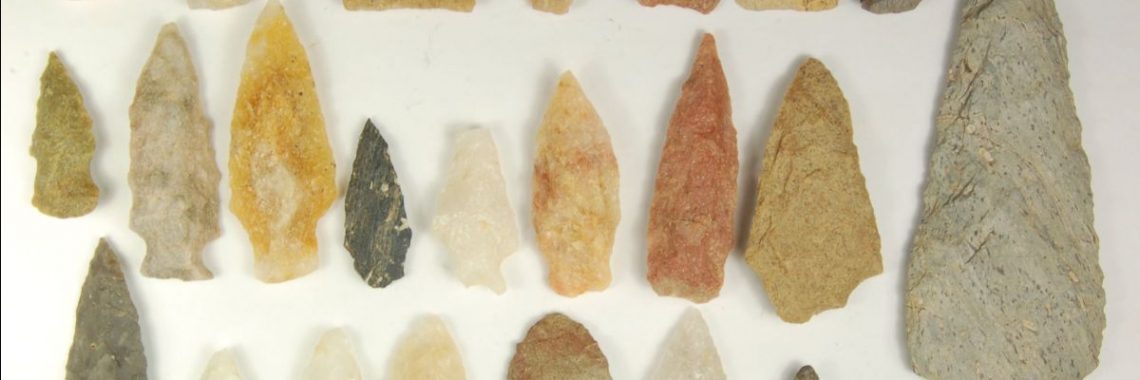County Archaeologists Catalog Research Collection; Discover 30 New Sites
Anne Arundel County archaeologists and volunteers have recently completed a two-year project to catalog the Bob Ogle Collection, a large research collection that was donated to the county by longtime local resident and avocational archaeologist Bob Ogle. With funding support from the Maryland Historical Trust, the team curated 150 boxes of artifacts from Anne Arundel, Calvert, Charles, and Prince George’s Counties.
Some highlights from the Ogle project:
- The collection contains 161,982 unique objects from 154 different archaeological sites.
- Revisiting the Ogle collection resulted in the identification of 30 new sites that were previously unrecorded by the State;
- 82 volunteers contributed 2,673 hours of work on the collection. A big thank you to all our volunteers and interns!
- Amelia Chisholm was lead author on the project’s technical report, which topped out at over 500 pages.
- Shawn Sharpe personally identified and catalogued an astounding 27,037 projectile points. Sharpe also cataloged over 44,000 unique objects from the Tanyard site in Anne Arundel County, a large site along the South River. The Native American base camp is stratified and has intact prehistoric occupation dating to around 2,000 years ago.
- Drew Webster and a cohort of summer collegiate interns catalogued over 55,000 colonial-period artifacts from the Swann sites in Calvert County.
- 108 Paleoindian artifacts were identified in the collection from 28 archaeological sites. 24 of these sites had never had a Paleoindian component identified at them before. These artifacts represent the oldest record of human habitation in Maryland, and date to as early as 13,500 years ago. This finding is a significant contribution to the research of Maryland’s earliest Native Americans.
- The team also identified 40 projectile points of the Hardaway Dalton, Dalton, and Hardaway Side-Notched types, which date to 10,500 years ago. Only 20 points of these varieties were known across the entire State prior to this research, so this work has tripled the known number of these exceptionally ancient projectile points in Maryland.
- The work has the potential for countless avenues for additional research, such as large-scale settlement patterns, lithic raw material preferences, and other comparative studies. Interested researchers, be they professionals or students, should contact volunteers@losttownsproject.org


